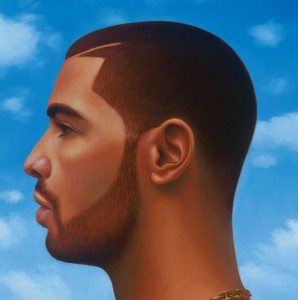Nothing offers more of the same Drake
As is to be expected these days, Drake’s highly anticipated third studio album Nothing Was The Same leaked days ahead of its scheduled Sept. 24 release date. The Toronto-born Aubrey “Drake” Graham — rapper, singer and former Degrassi star — has just as dedicated and diverse a fanbase as he does disparagers. The root of the issue is the cultural dichotomy that Drake has created and attempted to refute. He is capable of representing a wide array of narratives as a result of his middle-class Canadian upbringing and child stardom, which clashes with the street-relevant, thug masculinity he often projects.

Thank him later · Toronto-based emcee Drake returns with his deeply personal and emotional style of hip hop on Nothing Was the Same. – Courtesy of Universal Music Group
Drake’s self-ascribed love for women is also at odds with his misogynistic grouping of women into a few discernable categories and character types. These dualities plague listeners who wish to defend his authenticity and torture those who question the very nature of his success. Most interestingly, though, Drake seems obsessively self-aware of these notions.
The album’s opening track is “Tuscan Leather,” a massive six-minute introduction track during which Drake frequently reiterates the rhetorical question “How much time is this n—a spending on the intro?” It’s one of the weaker tracks on the album, as Drake repeatedly and exhaustingly tells us all the things he insists he doesn’t have to tell us — how rich and relevant he is. It’s only about halfway through the track that the beat changes and he gets down to the nitty gritty, discussing feeling misunderstood and his recent lack of communication with his good friend, Nicki Minaj.
Much of Drake’s lyrical content involves the rapper’s favorite topic: himself. In the second track, “Furthest Thing,” he describes himself as somewhere in between “psychotic and iconic.” These fascinating moments of self-analysis are countered by moments in the track when Drake’s sincere concerns and insecurities push him into off-putting defensiveness.
Drake delves into his unique relationship dynamics on “Own It,” which, to Drake’s credit, does not allow for passive listening. The rapper waxes poetic about the difficulty of finding a genuine relationship for someone in his position of fame. He professes his persistent desire to turn a physical relationship into a substantial romantic one, and Drake puts his listeners in the moment with his personal lyrics: “Next time we f-ck, I don’t wanna f-ck, I wanna make love / Next time we talk, I don’t wanna just talk, I wanna trust / Next time I stand tall, I wanna be standin’ for you.”
But Drake is at his best when his lyrics depart from talking about himself. “From Time” is one of the only tracks on the album featuring a singer and is easily the best song on the album. Up-and-coming vocalist Jhene Aiko, with whom Drake has collaborated with on several occasions, pines for our protagonist. The sweetness of Aiko’s vocals complements Drake’s lyrical treatment of his relationship with his father, his mother’s illness and relationships with women from his past that bring him to question his self-worth.
“Connect” sees Drake once again trading in his tough-guy rapper persona for vulnerability as he delves into the difference between “real” relationships and those that are toxic. Drake’s lyrics on “Connect” are an indictment on materialistic money-grubbing females. He implores such women to “learn to love people and use things / And not the other way around.” Drake channels the flow he used as a featuring artist on the Migos hit “Versace” on “The Language,” a well-crafted club banger.
Drake tips his hat to hip-hop legend Jay Z on “Pound Cake / Paris Morton Music 2,” where the two rappers muse about fame over a soaring “C.R.E.A.M.”-sampling instrumental. Undoubtedly Drake is inviting at least some comparisons to the Brooklyn emcee, if not proclaiming himself to be on a similar plane. Despite this, Drake eschews his competitive side on “Too Much,” a track featuring Sampha which Drake premiered on Late Night with Jimmy Fallon. His tone on the track is similar to “From Time,” as Drake admits that he needs to “take a deep breath” and stop worrying about “being the best out” in a genre that always invites comparison and competition.
For the active listener, Drake is at his best when he’s making his music approachable and deeply personal. At his worst, his attempts to embody what he believes to be “real” (and, consequently, marketable) are counterproductive. For some, the album might be destined for success or doomed from the start, simply because of the nature of Drake’s name and his role in contemporary culture.
Drake is a very talented individual, but his difficulty in shedding his self-centeredness is often distracting. Nothing Was The Same, however, builds on ideas that tug at the core of the Drake dichotomy. The album hopes to change hip hop and music, and prove that the rapper is ready to step into the ring, fight and win — particularly in light of Kendrick Lamar’s verse on the Big Sean track “Control,” where Lamar essentially fired shots at the current state of hip hop and its lack of artistic credibility and going so far as to mention Drake by name. Whether or not the album actually has the muscle to propel Drake into the realm of more inventive emcees such as Kendrick Lamar and Earl Sweatshirt remains to be seen.
Follow us on Twitter @dailytrojan
